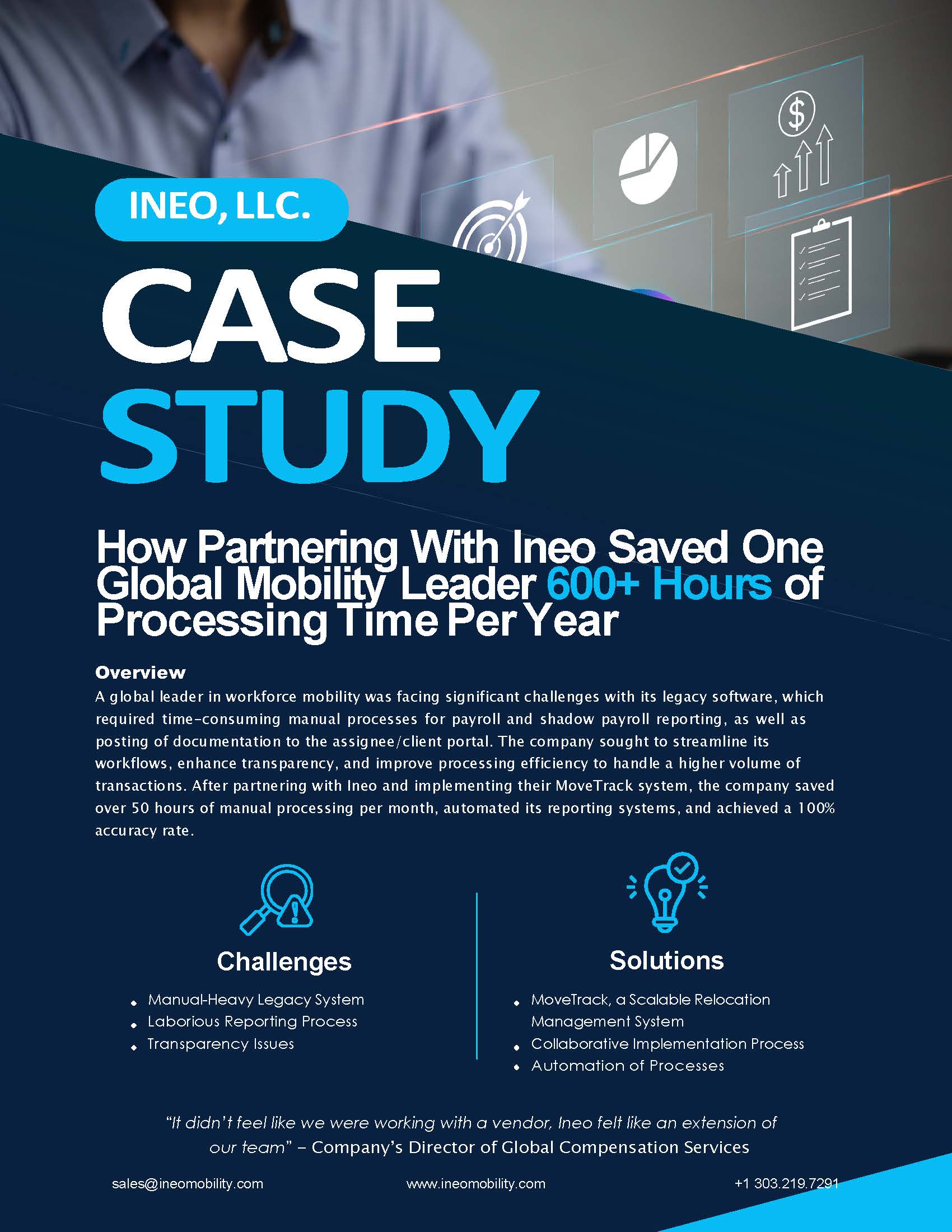Identifying the Best Candidates for Relocation Assignments
Can asking the right questions connect you with “the perfect expatriate” employee?
Domestic and international assignments are one of the most effective strategies for an organization to develop a more expansive and “organic” talent pool. Even so, at too many companies the only standards for relocating employees are the assignee’s technical skills and willingness to relocate. With very little awareness of whether an assignee is genuinely a good match, the possibility of assignment failure increases.
According to Worldwide ERC – long-term, traditional assignments cost an average of $1 million. Considering the financial and resource losses that companies could face if an assignment fails, choosing the correct candidate is critical.
Other consequences of failed assignments are more challenging to quantify, such as a loss of productivity. In the wake of a failed assignment, companies must also scramble to fill the now-vacant position while accounting for the negative impact the termination can have on team morale and reputation.
How to evaluate if an employee would be a good candidate for global relocation assignments
To ensure a successful relocation assignment, it’s essential to take steps to assess candidates to find the right match for the position. Adding an assessment to your mobility process doesn’t require considerable investment and will help to quickly determine if an employee is the best fit for a relocation assignment. Employing a non-partial global mobility counselor or HR professional to ask the right questions can assure you find a suitable fit for a mobile assignment.
An initial interview assessment
The most straightforward way to measure if an employee is a possible candidate for a global relocation assignment is to gauge their interest in global relocation assignments during their initial hiring interview with the company. Include straightforward questions that will help you gauge their interest, such as:
- Are you open to exploring career opportunities that require relocation?
- Are you more or less likely to accept a position that requires you to remain open to relocation to our organization’s other locations?
- Have you relocated for a position in the past? If so, was it a positive experience that you’d consider participating in again?
If an applicant demonstrates their interest in a possible relocation in the future, discuss your company’s mobility program with them! This should include an overview of an assignment lifecycle and potential relocation sites. This dialogue will help set an employee’s expectations for future assignments.
A self-guided family assessment
Most companies understand the importance of identifying candidates with both hard and soft skills that are needed to excel in an international assignment. However, many mobility assignments fail due to difficulties encountered by an assignee and their family, instead of gaps in an assignee’s qualifications.
Supplying a candidate with a self-guided questionnaire to complete with their family at home creates an opportunity for an employee and their household to discuss how relocating may affect the family dynamic.
Questions that may prove insightful for an assignee and their family:
- How will this relocation potentially impact your the traveling spouse’s career?
- Will this assignment interrupt your children’s education?
- How will relocating affect your ability to care for elderly or sick relatives?
- What essential resources (finances, transportation, housing) need to be available in the host country to maintain your family’s current quality of life?
- What apprehensions does each family member have about relocating?
Ideally, a self-questionnaire will initiate a dialogue that will help an assignee and their family understand how relocation may influence their day-to-day and establish correct expectations for how their relocation will unfold. Addressing concerns before relocating is significantly more manageable than dealing with unforeseen circumstances during their stay.
A personality trait assessment
According to one study by Florida Atlantic University, researchers found a distinct correlation between an assignee’s personality and the success of an international assignment. Assignees who exhibited these five positive traits found it easier to acclimate to different cultures and environments, ultimately contributing to their success as expatriate employees.
The five positive personality attributes that make a quality assignee include:
- Emotional stability is integral in successfully adjusting when faced with culture shock and significant life changes.
- Openness supports an appreciation of novelty and receptivity to positive experiences.
- Extroversion contributes to the better development of emotionally supportive networks.
- Conscientiousness is necessary for understanding and appreciating diverse cultures.
- Agreeableness promotes positive interpersonal relationships and interactions.
If the candidate fails to possess these traits, the likelihood of assignment failure increases. However, a personality trait assessment shouldn’t take the shape of a black-and-white checklist. For example, an assignee may exhibit introversion, but have a stable familial network to support them during their relocation, making shyness less of a personality pitfall.
Unfortunately, there’s never a guarantee that candidates’ assignments will be successful, but establishing a thoughtful employee relocation assessment strategy can increase the likelihood of success. In tandem with consideration of their skill sets, assessments should help determine an assignee’s strengths and potential challenges they may encounter during their relocation.
The experts in global mobility solutions
Contact us to discover how Ineo can benefit your mobility program with our comprehensive assignment lifecycle management software, multi-state and international relocation estimates, and more.
Global Mobility Resources
Learn more about what’s going on at Ineo and insights into the complex world of global mobility from the industry’s top thought leaders and innovators.
Request A Demo
Whether you are new to the world of global mobility or you’ve been in the business for a while, Ineo is here to assist you.
The best way to learn how Ineo’s global mobility software can help your company revolutionize your global mobility program and support your business strategy is to see it in a demo.
Fill out this form to get started today.
Get Started






